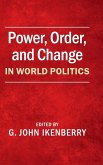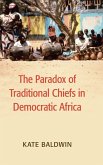From 1964 to 1985 Brazil was governed by a military dictatorship unlike its predecessors but soon to become the model for other authoritarian regimes in South America. It attracted civilian technocrats and foreign investors to engineer an "economic miracle", and to consolidate its economic model it initiated sweeping political change that was intended to rid Brazilian society of radical social movements and the state and political system of traditional politics and elites. This study demonstrates that military aims notwithstanding, a traditional political elite has persisted in Brazil through two regime changes - one to and one from authoritarian rule. During the dictatorship, traditional politicians retained considerable power in the state governments, which were their traditional redoubts. In particular, they continued to occupy high-level appointed offices that permitted them to retain control of patronage, their most important political resource. Since the transition to democracy, as prominent Brazilian intellectuals have charged, genuine political debate has fallen victim to a restoration of oligarchical power and clientelistic practices typical of traditional Brazilian politics. This study argues that the military project was severely constrained by the pattern of mediation between state and society that it inherited, the expansion of the state's productive, regulatory, and distributive roles that underlay its model for economic stabilization and development, and the need to marshal political support for the largely symbolic elections that it permitted as part of its strategy for governing. State-led capitalist development led to an expansion of clientelism in that it enhancedboth the state's resource base and the number of clients dependent on state programs, at the same time that more competitive elections made the resort to clientelism, and the traditional politicians who could marshal votes on this basis, more compelling. By leading a negotiated transition away from authoritarian rule, traditional political elites secured prominent positions in the postauthoritarian state and political system.
Hinweis: Dieser Artikel kann nur an eine deutsche Lieferadresse ausgeliefert werden.
Hinweis: Dieser Artikel kann nur an eine deutsche Lieferadresse ausgeliefert werden.








